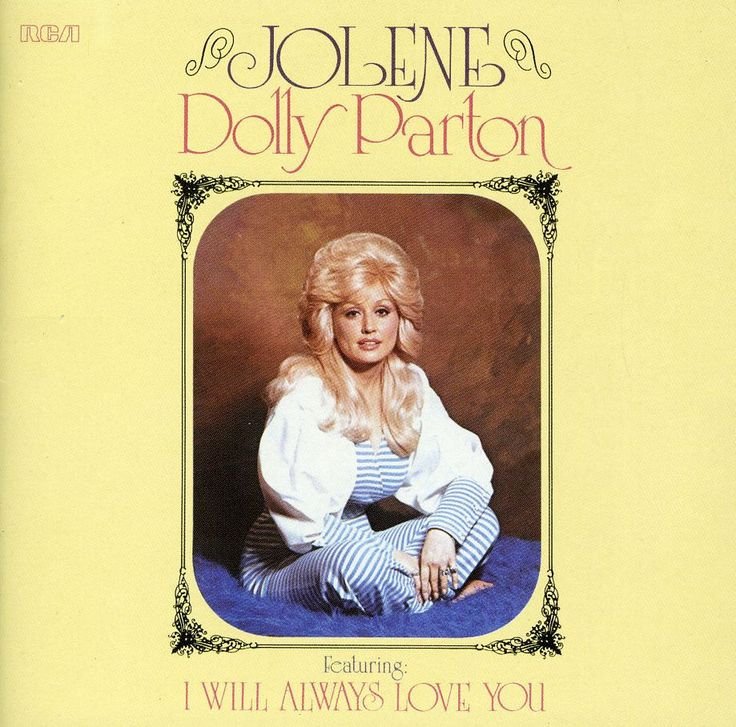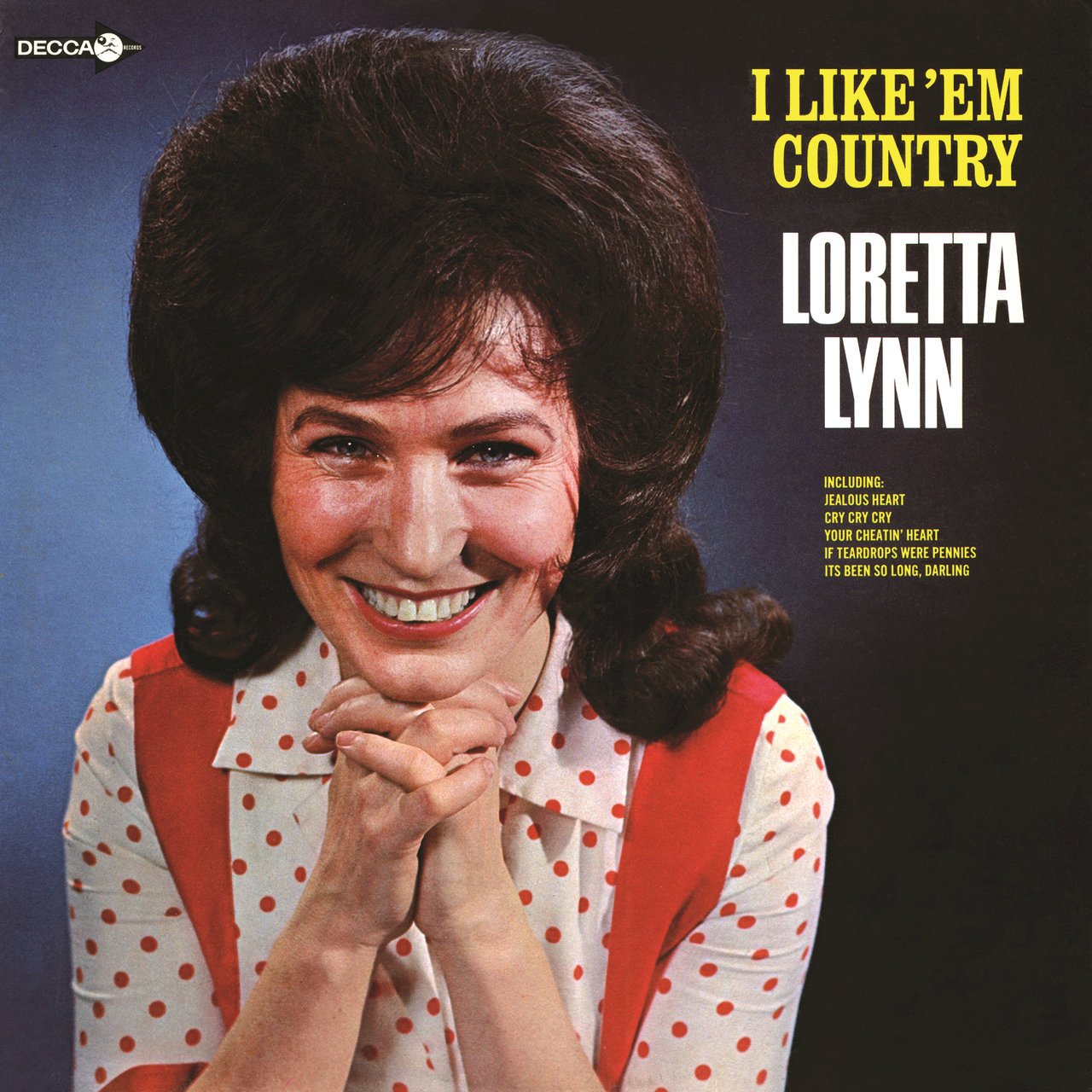1950년대, 1960년대, 1970년대의 클래식 컨트리 음악은 항상 남성 중심의 클럽이었습니다. 그 시대의 많은 팬들에게 그들의 좋아하는 아티스트를 물어보면, 잘 알려진 몇몇 이름이 나올 것입니다: Merle Haggard, Johnny Cash, Hank Williams, John Prine 등. 하지만 그 시기는 동시에 위풍당당하고 강인한 여성 아티스트들을 탄생시켰습니다. 이들은 한 손에는 아기를 안고 다른 손으로는 위스키 샷을 마시며, 남성을 언어로 압도할 수 있는 능력을 가졌습니다—모두 큰 머리 스타일을 완벽하게 유지하면서요. 아래는 남자들에게만 맡기지 않기로 결심한 여성들이 소장해야 할 꼭 필요한 클래식 컨트리 앨범들을 소개합니다.

키티 웰스: Winner of Your Heart
키티 웰스는 컨트리 음악의 여왕으로 찬사를 받고 있으며, 그럴 만한 이유가 있습니다. 그녀의 사려 깊은 히트곡 “It Wasn’t God Who Made Honky Tonk Angels”는 한끄 윌리엄스의 노래에 대한 페미니스트의 반응으로, 여성들이 불행한 바람둥이 남편들 때문에 비난받고 있음을 암시합니다. 웰스는 여성 최초로 컨트리 차트를 정복하며 수십 년간 여성 컨트리 스타들을 위한 길을 열었습니다. 이런 끈기는 새로운 남자와 함께하고 싶어하는 여자를 다룬 앨범 Winner of Your Heart에서 드러나며 그녀의 쓸쓸한 매력을 더합니다. 그들은 사랑하는 이와 함께할 수 없다면 현재 함께 있는 이를 사랑하라고 하지만, 웰스의 이 결과에 대한 완벽한 시무룩한 bitterness는 이 앨범을 너무나도 현실감 있게 만들어줍니다.

돌리 파튼: Jolene
국내에서 가장 상징적인 여성 아티스트가 남긴 가장 상징적인 앨범 중 하나인 Jolene은 돌리 파튼의 해방의 첫 음성을 담고 있습니다. 그녀는 이 시점에서 오랜 음악 파트너인 포터 와그너와의 관계를 끊고 자신의 음악적 경력을 회복하며 솔로 경력을 쌓을 준비를 하고 있었습니다—그리고 그녀가 그렇게 한 것은 다행입니다. Jolene은 그녀의 가장 유명한 트랙 두 곡인 “Jolene”과 “I Will Always Love You”를 특징으로 하며, 파튼의 놀라운 재능을 증명하는 앨범입니다. 부드럽게 흘러가는 “Randy”부터 vulnerably, Angel of the Morning의 느낌을 주는 “Lonely Comin’ Down”, 거의 찬송가 같은 “River of Happiness”까지, 낭비는 전혀 없습니다. Jolene은 파튼의 모든 음악적 영향을—컨트리, 포크, 남부 복음, 팝—모두 효과적으로 융합하여 테네시 세비어빌 이쪽에서 최고의 버터스카치 파이를 만들어냅니다.

로레타 린: I Like ’Em Country
컨트리의 가장 발랄한 여성 중 한 명인 로레타 린은 당신을 “fucker”와 “darlin’”이라 동시에 부를 수 있는 해사한 해결책을 가지고 있습니다. 그녀의 여섯 번째 앨범에서 그녀는 한끄 윌리엄스와 조니 캐쉬의 곡을 커버하지만, 진정으로 그녀의 입장을 분명히 하며 남편에게 더 열심히 가사 작업을 요구하는 “Two Mules Pull This Wagon”, 그들을 갈라 놓으려는 모든 여성에게 경고하는 “The Home You’re Tearin’ Down”, 그리고 베트남 전쟁에 반대하는 목소리를 내는 “Dear Uncle Sam” 등을 통해 정치적인 메시지도 담았습니다. 이 앨범은 화가나고 슬프고 결단력 있으며 엉뚱한—고전적인 로레타입니다.

도티 웨스트: Suffer Time
이 앨범의 아름다움은 Suffer Time이라는 제목이 바로 이 앨범이 가져야 할 유일한 제목이라는 것입니다. 저녁 종이 울리고 불운이 메뉴에 올라와 있으며 이 앨범의 모든 캐릭터는 그에 대한 혜택을 받고 있습니다. 도티 웨스트는 테네시에서 태어나 결국 내슈빌로 가서 남성 중심의 컨트리 녹음 산업에서 자신의 위치와 힘을 찾기 위해 고군분투했습니다. 그녀의 실망은 그녀의 곡 “Before the Ring on your Finger Turns Green”처럼 단호한 지혜를 가져왔으며, 그녀는 친구에게 곧 결혼할 플레이보이와 떨어질 것을 조언합니다. 그 남자는 “변덕스럽고, 싸고, 가짜이기도 하다; 너에게 준 반지와 마찬가지로.” 이런 직설적인 정직함이 웨스트를 이렇게 매력적으로 만드는 이유입니다—그녀가 잘못 인도하는 것에 대한 무관심은 이 앨범의 주요 주제이며, 그럴만 합니다. Suffer Time의 세계에서, 웨스트는 당신이 바의 화장실에서 만날 수 있는 여자로, 알맞은 양의 잭 다니엘스에 적신 충고로 당신을 구해주며, 그녀가 안다는 운명에서 벗어나게 합니다—이 앨범은 늦은 밤 모험을 위해 반드시 필요합니다.

패치 클라인: Sentimentally Yours
컨트리 팬이 아니라고 주장하는 사람들에게도 사랑받는 Sentimentally Yours는 1960년대의 비통함을 완벽하게 담고 있습니다. 그것은 한 개의 빨대가 꽂힌 바닐라 밀크쉐이크이며, 아직도 조리 마담의 약간의 향기가 느껴지는 누렇게 변한 편지들이 담긴 서랍이기도 합니다. 이 앨범은 그 자체로는 더욱 두비-왑 같은 사운드를 띄고 있지만(앞서 1957년 발표한 동명의 앨범에서 만들어진 컨트리 관객에서 더 팝을 좋아하는 관객으로 넘어가기 위해), 클라인은 많은 곡이 한끄 윌리엄스의 명곡 커버로 구성되어 있어 그녀의 컨트리 자격을 고스란히 갖추고 있습니다. 동시대의 쌍둥이 아티스트인 도티 웨스트에게도 초기 멘토 역할을 했던 클라인은 1970년에 불행하게 비행기 사고로 세상을 떠나기 전 약 1년agana의 Sentimentally Yours를 녹음하며, 영원히 우리의 감성적인 존재가 되고 말았습니다.

완다 잭슨: Rockin’ With Wanda
특유의 날카로운 목소리와 장난감 권총을 주머니에 지닌 오클라호마 소녀인 완다 잭슨은 컨트리 음악의 뿌리와 록앤롤에 대한 사랑을 현명하게 융합하여 그녀만의 독특한 록커빌리 사운드를 창조해냈습니다. Rockin’ With Wanda는 발을 두드리게 하는 곡으로, 와일드 바른 소리에서 메이컵 포인트까지 그리고 다시 애프터 파티로 이어지는 작은 앨범입니다—물론, 타운의 그리서 갱과의 몇 차례의 충돌도 있습니다.

탐미 와이넷: Your Good Girl’s Gonna Go Bad
탐미 와이넷의 모든 앨범은 본질적으로 긴 형식의 일기처럼 느껴지며, 이번 앨범은 이별 후에 찾아온 지혜로움과 깨달음을 담고 있으며, 확실히 그걸 넘어서 현재의 상황에서 벗어나기를 원합니다. 모든 여성들처럼, 와이넷은 그가 사랑하는 이를 사랑받기를 원하는 것을 바라고 있으며, 불안정한 파트너와의 견고한 토대를 만드는 데 어려움을 겪으면서 화가 나 있습니다. 타이틀 트랙이자 이 앨범의 최대 히트곡에서, 그녀는 진정된 절망의 지점에 다다르게 되며—가장 공감할 수 있는 방식으로—남편에게 마지막으로 애원하기 위해 모든 것을 바꿉니다. 그녀는 “너가 그들을 화장하고, 파우더로 꾸며주면, 너는 기뻐해야 해 / 왜냐하면 네 좋은 여인이 나빠지기 때문이야.” 많이들 올리비아 뉴튼 존의 영화 Grease에서의 샌디와 같은 상황으로, 좋은 탐미는 나쁜 탐미가 되지만, 그건 여전히 충분하지 않고, 아마도 결코 충분하지 않았을 것입니다. 그 모든 것에도 불구하고, 와이넷의 파란 optimism은 이 앨범을 간직하고 싶게 만듭니다.

마고 프라이스: Midwest Farmer’s Daughter
이 앨범은 2016년에 발표되었지만, 만약 프라이스가 30년 일찍 태어났다면 1966년에 출시되었을 것입니다. 멤피스의 유명한 선 스튜디오에서 녹음된 이 앨범은 마고의 전당포로 걸었던 결혼 반지 값으로 제작되었습니다. Midwest Farmer’s Daughter는 그녀의 선배들과 같은 힘든 삶의 진정성을 공유하는 여성의 결과물임이 분명합니다. “About to Find Out”에서의 기쁜 Fist City 스타일의 배신감에서 “Weekender”까지, 그 짧은 감옥 기간에 대해 솔직하게 이야기하는 것까지, Midwest Farmer’s Daughter는 벌써 고전처럼 느껴지는 앨범이며, 10년 후에는 훌륭한 투자로 기억될 것입니다.

린다 론스타트: Linda Ronstadt
“You’re No Good”이 1974년에 차트에 진입하기 전에, 린다 론스타트는 실제로 그녀의 민속, 컨트리 음악으로 알려져 있었습니다. 놀랍게도, 그녀의 동명의 1972 앨범은 출시 당시 큰 실패로 간주되었지만, 다행스럽게도 시간이 가끔 불의를 조화시키며 이 앨범은 이제 컨트리 클래식으로 인정받고 있습니다. 겸손하고 정직한 Linda Ronstadt는 정확히 그런 음반입니다. 그녀의 풍부한 목소리는 모든 곡에서 빛나며, 그에 담긴 재능 있는 밴드에는 이글스를 결성하기 직전의 글렌 프레이, 돈 헨리, 랜디 마이즈너가 포함되어 있습니다. 가장 인상적인 것은 소울 슈퍼스타 메리 클레이튼이 코러스에 참여했다는 사실입니다. 이 앨범은 그 당시에는 과소평가되었을지 모르지만, 지금은 절대 놓칠 수 없는 앨범입니다.

낸시 시나트라: Country, My Way
당신이 무슨 생각을 하고 있든, 낸시 시나트라는 팝 가수입니다; 그녀는 컨트리를 하지 않습니다. 당신이 옳습니다. 하지만 시나트라는 또한 그녀가 원하는 모든 것을 하는 사람이며, 컨트리 앨범을 하고 싶을 때 그녀는 바로 그렇게 합니다. 두 번째 곡 “Get While the Gettin’s Good”은 이 앨범의 기준을 설정하며, 주로 그녀가 인기 있는 컨트리 히트를 그녀 나름대로의 스타일로 재해석하는 곡들로 구성되어 있습니다. 스키터 데이비스의 “End of the World”의 더 밝은 버전부터, 롤링 리 헤이즐우드의 듀엣인 “Jackson”, “Oh Lonesome Me” 그리고 조지 존스의 고전 “Walk Through This World with Me”까지 포함되어 있습니다. 이 앨범의 오리지널 곡인 “Lay Some Happiness on Me”와 “Help Stamp Out Loneliness”는 확실히 시나트라에게 충분한 컨트리 자격을 주어 앨범을 그녀의 경력 안에서 단지 이상적인 앨범이 되지 않게 만듭니다. Country, My Way는 확실히 틈새 앨범으로, 클래식한 시나트라가 새로운 색깔의 카우보이 부츠를 신고 있는 것과도 같습니다. 그러나 이 앨범은 정말 많은 재미를 주고, 모든 컬렉션에 악성 요소가 필요합니다.
에리카 파겟은 로스앤젤레스에 거주하는 작가, 큐레이터, DJ입니다. 그녀는 커버송에 집착해 있으며, 지금까지 9시간 분량의 재생 목록을 편집했습니다 - 그리고 예, 그녀는 그 노래를 이미 들었습니다.
